Politics
Unexploded bombs sow fear among Gazans under fragile truce
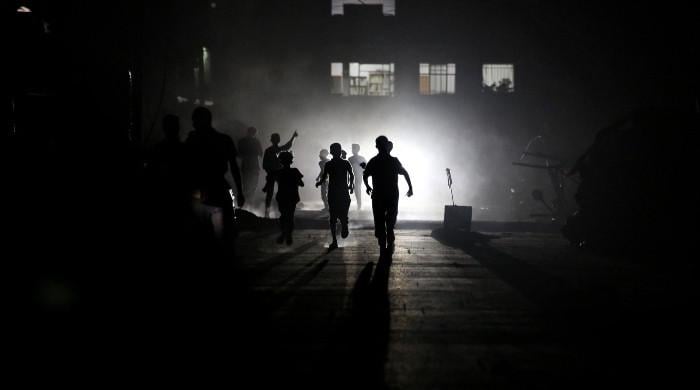
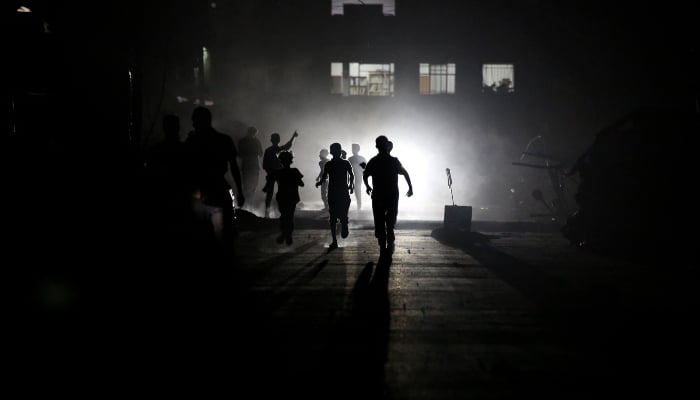
Moein al-Hattu’s home has been ripped apart, its cinder block walls blown out into the street and a dusty grey bomb hangs menacingly from a damaged pillar, its tip resting on a crushed chest of drawers.
Weighing more than a tonne, the munition was dropped during an airstrike on Gaza City during fighting between Israel and Hamas but has not exploded, yet.
“I’m living in terror and unable to remove it,” al-Hattu told AFP, as children wandering through the rubble paused to marvel at the threatening intrusion.
The grey-bearded Palestinian wants to hang tarpaulins from the shell of his bombed-out home and move back in, but has been unable to find anyone in Gaza with the skills or equipment to remove the giant bomb.
“The relevant authorities, whether the civil defence or the municipality, say they can’t remove it. Who can I go to and complain to?” he demanded.
“If it had exploded, it would have caused massive destruction and destroyed at least five to six houses.”
After two years of war, the ruined cities of Gaza, a densely packed territory home to more than two million Palestinians, are littered with military debris, including unexploded, still-deadly munitions.
In the streets of Gaza City, children play with rocket parts and the tail fins of mortar shells, oblivious to or unbothered by the danger.
According to a study by charity Handicap International, Israel has dropped around 70,000 tonnes of explosives on targets in Gaza since October 7, 2023.
Cardboard for cooking
In January this year, the United Nations Mine Action Service (UNMAS) warned that between five and 10% of these bombs did not explode — leaving their deadly payloads to be recovered by the fighters or discovered by frightened residents.
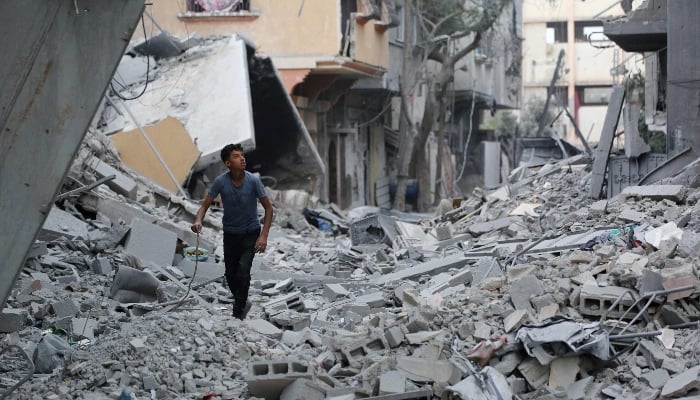
At Gaza City’s Al-Shifa Hospital, Mohammed Nour sat beside a bed holding his two injured children.
The pair watched mute and glassy-eyed, their legs bound and skin flecked with shrapnel as he explained how they had been injured.
“We were setting up our tents and the boys went to look for wood, nylon and cardboard to burn to use for cooking,” Nour told AFP.
“About ten metres away from us, we suddenly saw boys being thrown by the explosion. We didn’t think they were our children and then we found them scattered in every corner.”
Nour’s sons may yet keep their limbs but in a nearby bed, six-year-old Yahya has lost part of his right hand and is all but covered in bandages. His grandfather Tawfiq al-Sharbasi sits by him, keeping vigil and strokes his hair.
“These are children. What did they do wrong? They were playing,” he said.
Jonathan Crickx, spokesman for Unicef Palestine, told AFP it was very difficult to estimate how many children have been injured by unexploded ordnance.
“Following the recent ceasefire, we have recorded reports indicating that at least eight children were seriously injured by explosive remnants of war,” he said, adding that UN agencies are trying to raise awareness of the threat.
To date, no demining equipment has been authorised to enter the Gaza Strip by the Israeli army.
Politics
New York City joins UN health network after Trump withdrew US from WHO
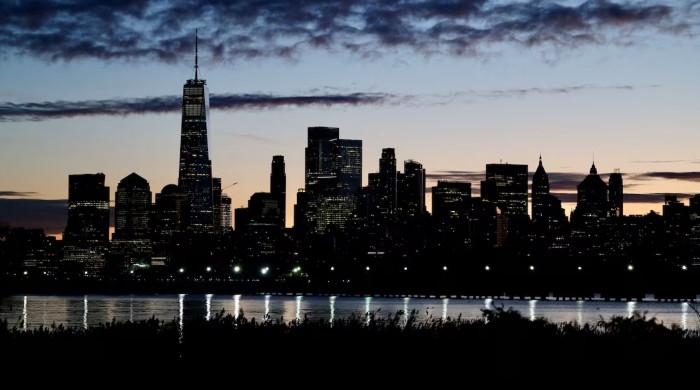

WASHINGTON: The New York City Health Department on Wednesday said it has joined the World Health Organisation’s global outbreak response network following President Donald Trump’s withdrawal of the US from the UN health agency.
Why’s important
Following the Republican president’s decision to pull the US out of the WHO, some Democratic leaders have made their regions join the WHO’s Global Outbreak Alert and Response Network (GOARN) in defiance of Trump. New York City Mayor Zohran Mamdani has been critical of the president’s policies.
California Governor Gavin Newsom and Illinois Governor JB Pritzker, both Democrats, have also said their states will join the WHO’s global outbreak response network. The network responds to public health events around the world, such as pandemics and disease outbreaks, and comprises of more than 360 technical institutions.
Key quotes
“By joining GOARN, New York City gains access to a global network of over 360 institutions and organisations that respond to acute public health events with the deployment of staff and resources to affected countries,” the NYC Health Department said in a statement.
“Infectious diseases know no boundaries, and nor should the information and resources that help us protect New Yorkers,” New York City Acting Health Commissioner and Chief Medical Officer Michelle Morse added.
Context
The US formally left the WHO last month after completing a one-year waiting period following an executive order that Trump signed in January 2025.
Since taking office, Trump has withdrawn the US from dozens of global and UN entities, saying they do not benefit Washington. His steps have been condemned by health and human rights experts.
Politics
Ukraine says Abu Dhabi talks with Russia ‘substantive and productive’
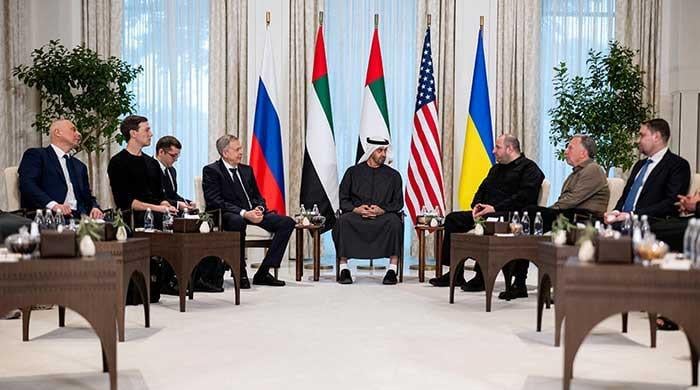
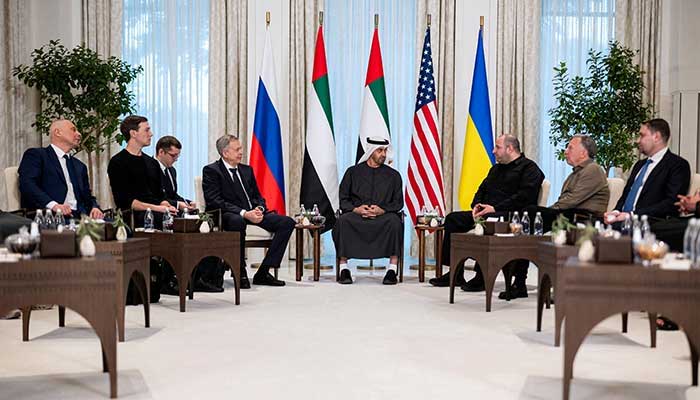
The first day of talks between Ukraine, Russia and the United States seeking to broker an end to the war in Ukraine concluded Wednesday in Abu Dhabi with Kyiv describing the negotiations as “substantive and productive”.
While there was no apparent breakthrough in the most recent round of discussions, the negotiations were set to carry on into a second day, Kyiv said.
The US-mediated talks are the latest in a flurry of diplomacy that has so far failed to strike a deal to halt the war, unleashed by Russia’s February 2022 invasion.
The war has spiralled into Europe’s deadliest conflict since World War II, with hundreds of thousands killed, millions forced to flee their homes in Ukraine and much of the eastern and southern part of the country decimated.
The talks were going on Wednesday as stepped-up Russian strikes on Ukraine’s power infrastructure left Kyiv residents in darkness and cold, with temperatures dropping as low as -20C.
But though the massive barrage threatened to overshadow progress, Ukraine’s top negotiator Rustem Umerov said the talks the first day were “substantive and productive, focused on concrete steps and practical solutions”.
As talks got underway, the Kremlin repeated its hardline demand that Kyiv give in if it wanted the four-year invasion to end.
“Our position is well known,” Kremlin spokesman Dmitry Peskov told reporters on Wednesday as the talks got underway.
“Until the Kyiv regime makes the appropriate decisions, the special military operation continues,” he said, using Russia´s term for the offensive.
In Ukraine, foreign ministry spokesman Georgiy Tykhy said Kyiv was “interested in finding out what the Russians and Americans really want.”
The content of the talks was on “military and military-political issues,” he added, without elaborating.
The main sticking point in settling the conflict is the long-term fate of territory in eastern Ukraine.
Moscow is demanding that Kyiv pull its troops out of swathes of the Donbas, including heavily fortified cities atop vast natural resources, as a precondition of any deal.
It also wants international recognition that land seized in the invasion belongs to Russia.
Kyiv has said the conflict should be frozen along the current front line and has rejected a unilateral pull-back of forces.
Trump dispatched his ubiquitous envoy Steve Witkoff and son-in-law Jared Kushner to try to corral the sides to an agreement.
Russia’s top negotiator is military intelligence director Igor Kostyukov, a career naval officer sanctioned in the West over his role in the Ukraine invasion.
Europe fears it has been sidelined in the process, even as France and Britain lead efforts to put together a peacekeeping force that could be deployed to Ukraine after any deal.
It was “strategically important for Europe to at some point be part of the negotiations,” the EU’s ambassador to Ukraine Katarina Mathernova told AFP on Wednesday in Kyiv.
Russia occupies around 20% of Ukraine, but Kyiv still controls around one-fifth of the Donetsk region.
Ukraine has warned that ceding ground will embolden Moscow and that it will not sign a deal that fails to deter Russia from invading again.
Russia also claims the Lugansk, Kherson and Zaporizhzhia regions as its own, and holds pockets of territory in at least three other Ukrainian regions in the east.
‘Prepare for the worst’
On the battlefield, Russia has been notching up gains at immense human cost, hoping it can outlast and outgun Kyiv’s stretched army.
Russian shelling of a market square in the frontline town of Druzhkivka killed seven on Wednesday, Ukrainian regional authorities said.
Following the first round of US-brokered talks in Abu Dhabi last month, Ukrainians were sceptical that a deal could be struck with Moscow.
“I think it’s all just a show for the public,” Petro, a Kyiv resident, told AFP.
“We must prepare for the worst and hope for the best.”
On the streets of Moscow, some were more hopeful.
“Everyone hopes, everyone is very optimistic about these negotiations,” says Larisa, a retiree who said she had family in Ukraine and relatives fighting at the front.
“It has to end one day, everyone’s had enough,” said Anton, a 43-year-old engineer.
Politics
Xi calls for ‘mutual respect’ with Trump, hails ties with Putin
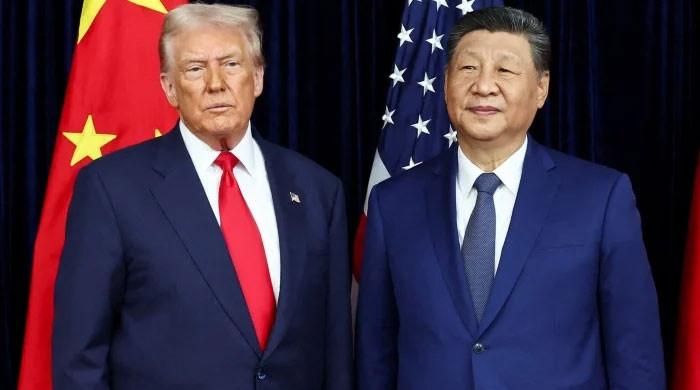

- Xi urges peaceful coexistence and win-win cooperation with US.
- Trump says US-China relationship is “extremely good” after call.
- Trump looks forward to planned trip to China, discusses trade, Iran.
Chinese leader Xi Jinping called Wednesday for “mutual respect” in strengthening relations with the United States, warning President Donald Trump in a phone call to use “caution” when selling arms to Taiwan, Beijing’s state media reported.
Xi expressed the hope that bilateral issues — amongst which trade figures highly — could be resolved amicably between the world’s two largest economies.
“By tackling issues one by one and continuously building mutual trust, we can forge a right way for the two countries to get along,” Xi said, according to state broadcaster CCTV.
“Let us make 2026 a year in which China and the United States, as two major countries, move toward mutual respect, peaceful coexistence, and win-win cooperation,” he added.
Trump, in a post on his Truth Social platform following what he called an “excellent” call, said ties between the two countries were “extremely good”.
“The relationship with China, and my personal relationship with President Xi, is an extremely good one, and we both realise how important it is to keep it that way,” Trump said.
The president said he and Xi discussed trade, Taiwan, the Russian war against Ukraine, and Iran, as well as a planned trip to China, which he said “I very much look forward to”.
On Taiwan, however, Xi warned Washington to exercise caution in arms sales to the island.
“The Taiwan question is the most important issue in China-US relations… The US must handle arms sales to Taiwan with caution,” Xi said, according to state broadcaster CCTV.
The United States approved $11 billion-worth of arms to Taiwan in December, Taipei said.
Putin’s ‘dear friend’
Speaking by video call several hours earlier, Xi and Putin hailed the strengthening of Chinese-Russian ties.
The two countries have sought to present a united front against the West, with ties deepening since Moscow´s 2022 invasion of Ukraine.
A Kremlin aide said the Xi-Putin call was “friendly and trusting” and lasted nearly an hour and a half.
Moscow has increasingly relied on China throughout the Ukraine conflict to keep its economy afloat, faced with crippling Western sanctions.
“Since the beginning of the year, the international situation has become increasingly turbulent,” Xi told Putin, calling for “deeper” Chinese-Russian coordination, according to state TV.
Addressing Xi as his “dear friend”, Putin voiced a similar message, in a video broadcast on Russian state TV.
The Kremlin said Putin had accepted invitations to visit China in the first half of 2026 and attend the APEC regional summit hosted by Xi in November.
Xi also reiterated his commitment to the international system with the United Nations at its core, after Trump in January unveiled plans for a “Board of Peace” that critics see as an attempt to rival the UN.
The calls took place as Russian, Ukrainian and US negotiators met in Abu Dhabi for a new round of talks on ending the almost four-year war, which has turned into Europe’s worst conflict since World War II.
Putin and Xi discussed their “opinions” on the United States, views that, according to the Kremlin, “practically matched” each other.
And “special attention was given to the tense situation in Iran”, said Kremlin aide Yuri Ushakov.
The calls follow a series of meetings between Xi and various leaders in recent months, as he consolidates diplomatic support in the face of an increasingly unpredictable United States.
-

 Sports1 week ago
Sports1 week agoPSL 11: Local players’ category renewals unveiled ahead of auction
-

 Entertainment1 week ago
Entertainment1 week agoClaire Danes reveals how she reacted to pregnancy at 44
-

 Sports1 week ago
Sports1 week agoCollege football’s top 100 games of the 2025 season
-

 Business1 week ago
Business1 week agoBanking services disrupted as bank employees go on nationwide strike demanding five-day work week
-

 Politics1 week ago
Politics1 week agoTrump vows to ‘de-escalate’ after Minneapolis shootings
-

 Sports1 week ago
Sports1 week agoTammy Abraham joins Aston Villa 1 day after Besiktas transfer
-

 Entertainment1 week ago
Entertainment1 week agoK-Pop star Rosé to appear in special podcast before Grammy’s
-

 Tech1 week ago
Tech1 week agoBrighten Your Darkest Time (of Year) With This Smart Home Upgrade






